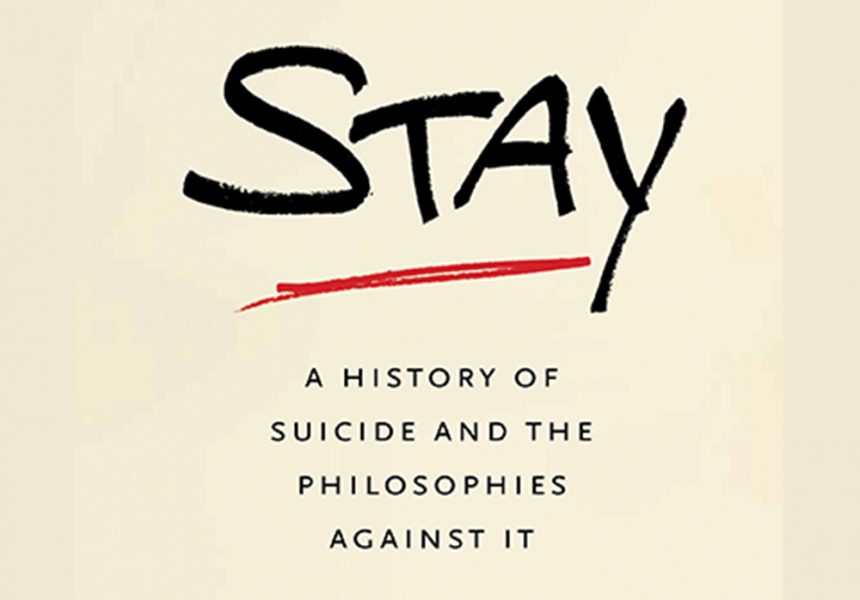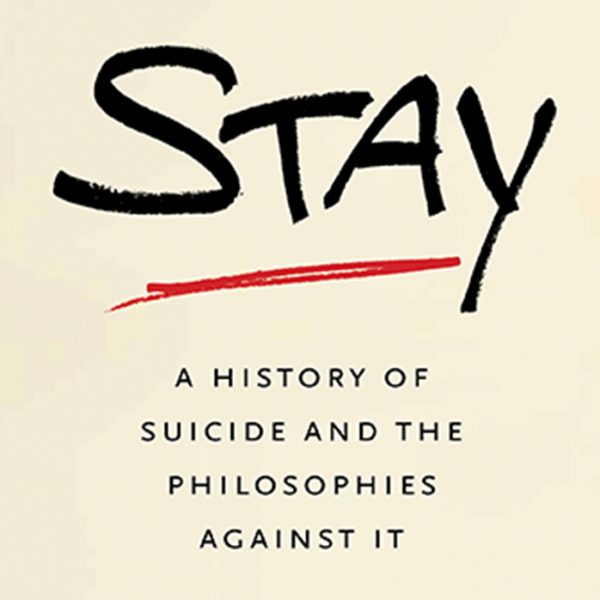Message: Don’t Look to Suicide, Stay with Us
Twenty years ago, the suicide of Kurt Cobain shook not only the alternative music scene, but much of popular culture as we know it. The infamous 27 Club, which then included musicians like Jimi Hendrix, Janis Joplin, and Jim Morrison, and more recently, Amy Winehouse, was mainly a phenomenon of accidental deaths and murder. Though many died from drug and alcohol related causes, Cobain’s suicide has continued to be a subject of great spectacle and controversy, even as the case was re-opened briefly in March 2014 and confirmed as suicide. The heartfelt responses—both of today and yesteryear—have rippled out from Cobain’s native Seattle region and reached a global recognition of this type of tragedy.
 In the critically-acclaimed, Stay: A History of Suicide and the Philosophies Against It, Jennifer Michael Hecht examines suicide from a number of philosophical, religious, spiritual, and cultural traditions, bringing forward the argument of what its impact has become in our contemporary society and how we deal —collectively—with the pain. In the video below, recorded for The Dish, Hecht discusses the mimetic tendencies of suicide in response to the impact that an individual’s suicide has on friends, family, and community. The message is to stay with us, as a part of a community: If you don’t kill yourself, you’re saving someone else’s life. “I’m grateful, you’re my hero. Thank you for not killing yourself.”
In the critically-acclaimed, Stay: A History of Suicide and the Philosophies Against It, Jennifer Michael Hecht examines suicide from a number of philosophical, religious, spiritual, and cultural traditions, bringing forward the argument of what its impact has become in our contemporary society and how we deal —collectively—with the pain. In the video below, recorded for The Dish, Hecht discusses the mimetic tendencies of suicide in response to the impact that an individual’s suicide has on friends, family, and community. The message is to stay with us, as a part of a community: If you don’t kill yourself, you’re saving someone else’s life. “I’m grateful, you’re my hero. Thank you for not killing yourself.”
Jennifer Michael Hecht: The Impact Of A Suicide from The Dish on Vimeo.





Thank you Jennifer for a very powerful message on suicide and its after-affects. As someone who lost a dear friend to suicide this hit very close to home for me. Her death was almost 5 years ago and I am still wracked with grief, guilt and sadness about it – why couldn’t I save her or make her stay? I completely understand the logic of your message and the research and facts behind it, but I wonder if telling the suicidal person that they will be saving another person’s life is enough to make them think twice? My sense with my friend was that she was in so much emotional pain that killing herself (in a terribly violent way) was preferable to continuing to live in the pain she was in. How to impress upon the person that the pain, however great, is temporary – although granted temporary can sometimes mean years when someone is in the throes of deep depression. Suicide is a permanent solution to that “temporary” problem. How can we see the suicidal person through this period of immense pain? What can we do, as individuals and as a community? Obviously I have more questions than answers. Assume these are addressed in your book, which I will read. Thank you again for addressing a difficult and sensitive topic with factual information and a great deal of compassion, which shines through in the video here. You are providing a ray of hope.
Hi Jennifer, I reblogged your post on my Jim Morrison Project site as it relates to the 27 Club, but I am going to also share a link to your video on my Facebook page, which has to do with death & grief. Very powerful video, to say the least.
Jim Morrison Project: http://www.jimmorrisonproject.com/entry/2014/04/message-don-t-look-to-suicide-stay-with-us
Grief Loss & Recovery: http://www.grieflosrecovery.com
Sorry, left out an “s” in Grief link: http://www.grieflossrecovery.com 🙂